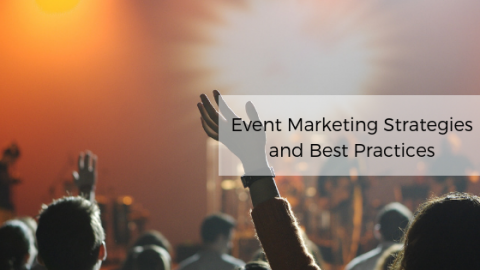The Techjoomla Blog
Event Marketing Strategies and Best Practices
In a customer-empowered world, marketers need to capitalize on every opportunity to get noticed, build relationships, and earn the trust of customers.
The modern consumer needs more than just a product pitch when evaluating solutions and making purchasing decisions. Therefore, there’s a lot that marketing companies can gain from events. Through events, companies can showcase their products while offering customers a firsthand experience of their brand and personality.
According to a study, 95% of marketers agree that events provide attendees with a valuable opportunity to form in-person connections in an increasingly digital world.
Whether it is trade shows or conferences, seminars or networking events, product launches or job fairs – you have many options at hand to foster trust and goodwill. Since events are such an integral part of any business, you need to make sure you’re looking into all the nitty-gritty.
That’s why we have brought together a list of event marketing strategies and best practices. These should help you to optimize your event marketing efforts and get the maximum return from every penny spent:
1. Set realistic goals upfront
The only way you will be able to get the results you expect from your events is by setting realistic and targeted goals - upfront. Considering the time, money, and effort you will be spending on organizing an event; you need to plan for a substantial ROI at the outset.
While a good number of registrations mean you’ve set foot on the right note, don’t just focus on the number of invitees, registrations or attendees. If you cannot convert the attendees into customers, there is no way you can justify your ROI. So, make sure to quantify the ROI in terms of new customers acquired and the corresponding revenue impact.
2. Understand your audience
The better you understand your audience, the more successful your event will be. So, make sure you have a good understanding of who your core attendees will be and what their expectations are. Your audience will set the foundation of every aspect of your event: the type and venue of your event, the content you will offer, and even how you craft your messaging and how you contact your invitees.
Unearth data about your audience to understand their individual personas – their background, needs, motivations, goals and pain points – and ascertain what your event can give that will offer them true value.
3. Do the right communication
Given how unique each persona is, think about an elevator pitch that will appeal the most. Offer consistent messaging to sell your event to the different personas you have developed and personalize your communications to garner more interest.
Since your event website will be one of the first touchpoints for potential attendees, make the website experience flawless to increase their likelihood of registering for the event. Time your emails well, use content that resonates with them, and empower your audience to register for the event – with the touch of a button. Capitalize on social media channels and utilize each of them to maximize exposure.
4. Follow-up
Once you’ve set up your website and begun sending event information through emails, SMSes and social media channels, ensure to follow-up with your invitees, so your event is always on the top of their minds.
Design your follow-up strategy well before the event begins, so your audience has enough time to plan for attendance. Offer early-bird discounts to invitees to encourage registration. Send emails that offer a short synopsis of the event along with a detailed event description and what attendees can expect from the event. And once the event is over, undertake lead nurturing activities to ensure maximum conversion.
5. Use a robust ticketing system
Using the right ticketing system is also a critical aspect while planning for an event.
A feature-packed event booking system that integrates well with your website, and offers stunning mobile capabilities is vital to make the registration process seamless.
Techjoomla’s JTicketing tool, for instance, supports JomSocial Events, Easysocial events, and JEvents so you can scale and support multiple event systems. It allows you to create ticket types with varying pricing, availability, and descriptions. With multiple payment options, stunning iOS and Android apps interfaces, and an instant PDF ticket generation capability, a tool like JTicketing can make event registration a cakewalk.
6. Plan for the event
A well-planned event is half the battle won. Make sure you plan for the event by considering every aspect: dig into data of previous events that you’ve organized to analyze which aspects worked well and which didn’t.
Use feedback from post-event surveys as a guide to finalize the event type, venue, time, and duration. Choose an environment that inspires attendees to participate actively. Create a space induces creativity and collaboration and deliver content that is attractive and engaging. Make sure the venue is easily accessible and plan your event agenda accordingly.
7. Constantly optimize ROI
When it comes to calculating the ROI of your event, it is important you know what you want to track. You can start by measuring the progression status of your attendees - invited, registered, attended, and no show, and move on to assessing where your leads are in your sales and revenue pipeline.
Devise metrics that capture how many opportunities were created, how many deals were closed, as well as the cost per opportunity (CPO). Such metrics can give you the insight you need into your events while allowing you to optimize your ROI constantly.
Are you ready to make an impact through your event?
When you subscribe to the blog, we will send you an e-mail when there are new updates on the site so you wouldn't miss them.

